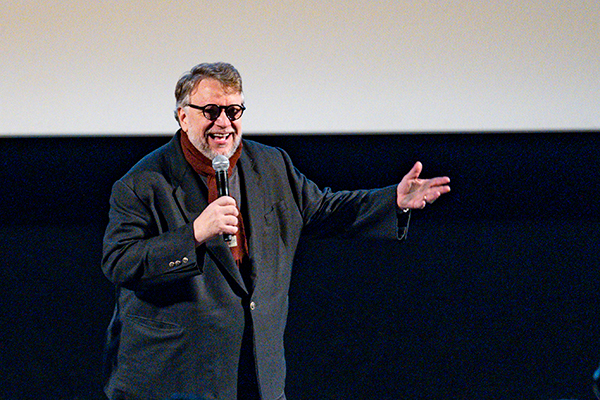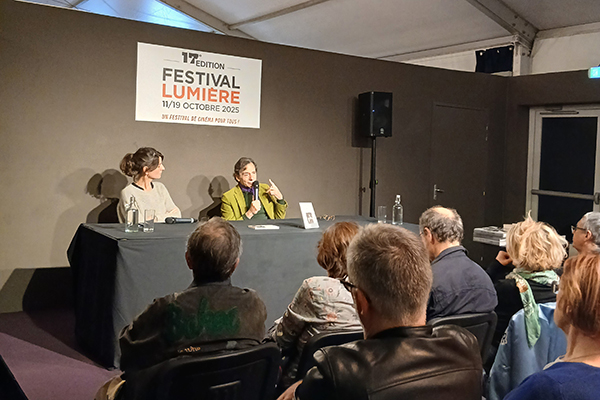Happening
at Lumière
PostED ON 17.10.2025
Guillermo del Toro introduces his film Frankenstein at the Hangar du Premier Film!
‘The film you’re about to see today symbolises the beginning of my life. I was seven years old when I saw Frankenstein starring Boris Karloff, and I understood that religion, Jesus, the pale flesh - all of this represented me! Four years later, I read Mary Shelley's novel, Frankenstein, and it dawned on me that the version I saw was not the story written by Shelley. At age eleven, I told myself, 'I will make this film and I will stay true to Mary Shelley'. Most of my movies are sort of ‘test runs’ of Frankenstein; meaning that Frankenstein was already present in all my works. And ultimately, this picture can be seen as a kind of twisted Catholic fable. On a personal level, this film shows a part of my life, my idea of romanticism, a part that’s coming to an end and that will lead me towards other horizons and stories, probably of the crime genre. Finally, I wanted to point out that everything was done by human hands, the sets, the costume fabrics, and that AI can go to hell!’

© Sandrine Thésillat - Jean-Luc Mège
Olivier Barrot, historian and writer, winner of the 2025 Raymond Chirat Prize, spoke at one of the village events
‘I see myself first and foremost as a journalist because, for me, it's a way of life. Journalism is a unifying force. My connection with Raymond Chirat is absolutely obvious. He was perhaps my closest friend. He nurtured my taste for old classics, in black and white, heritage films of memories, remembrance, the past. He taught me how to recognise faces. He had a gift for storytelling, in all its detail and precision. I met him in 1971 in Lyon to discuss Jules Berry. We wrote many books together, not all of which were on cinema, but also on the theatre. Like him, I was passionate about the history of entertainment in general. We developed a friendship that I would describe as close (even though he could have been my father, given the age difference), and we loved actors, not only the most famous ones, but also those in more minor roles. So we wrote a book about these actors (Les Excentriques du cinéma français), those who played a supporting role in French cinema.’

© DR

